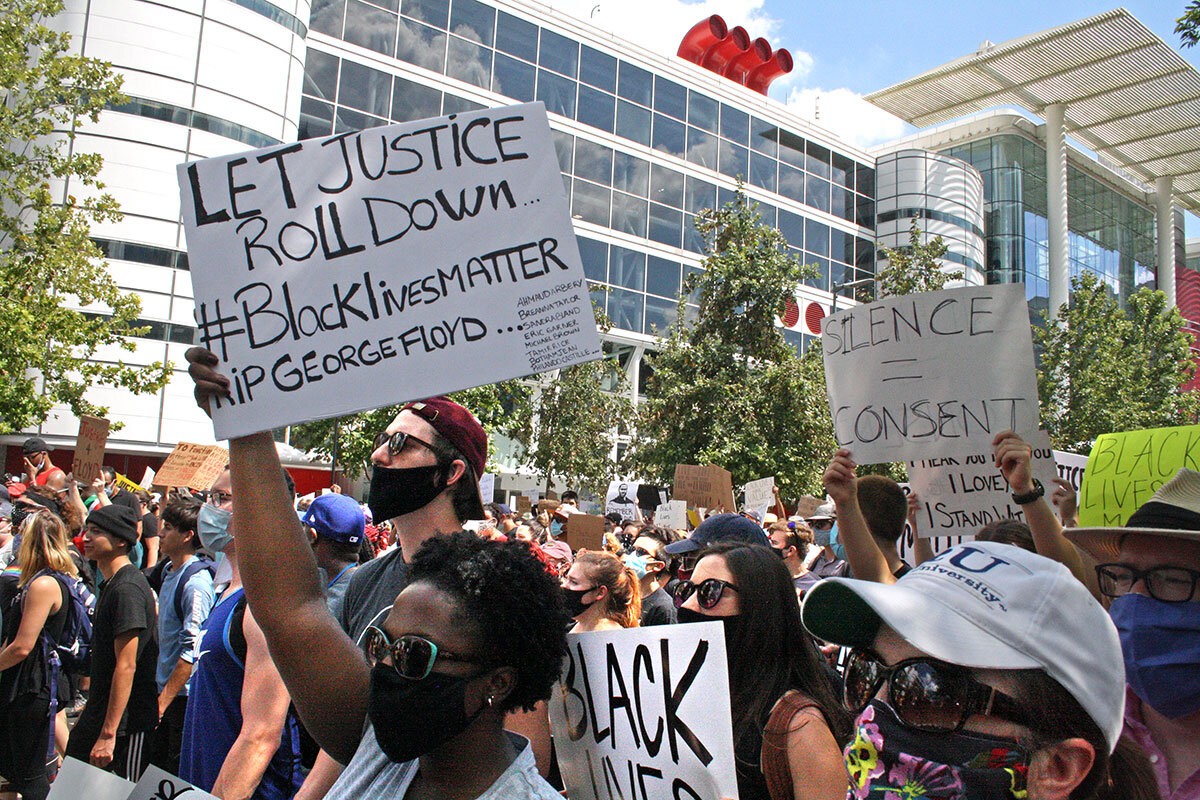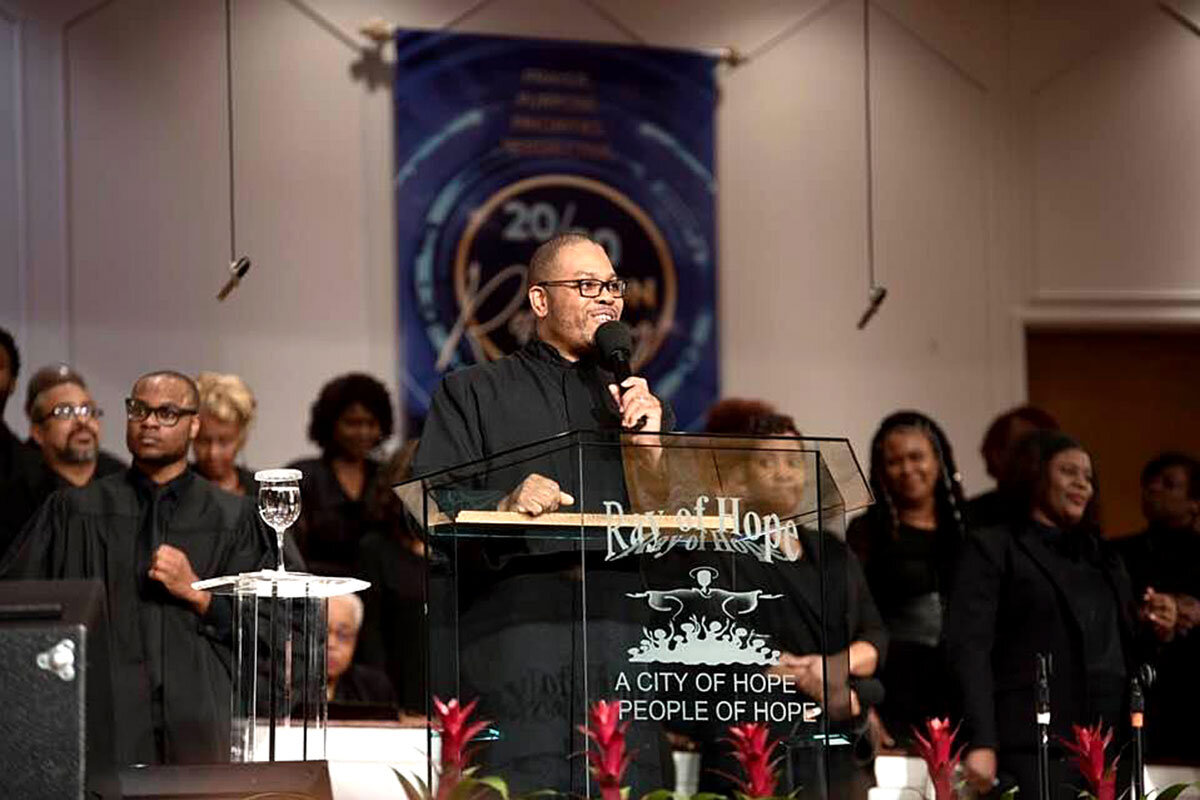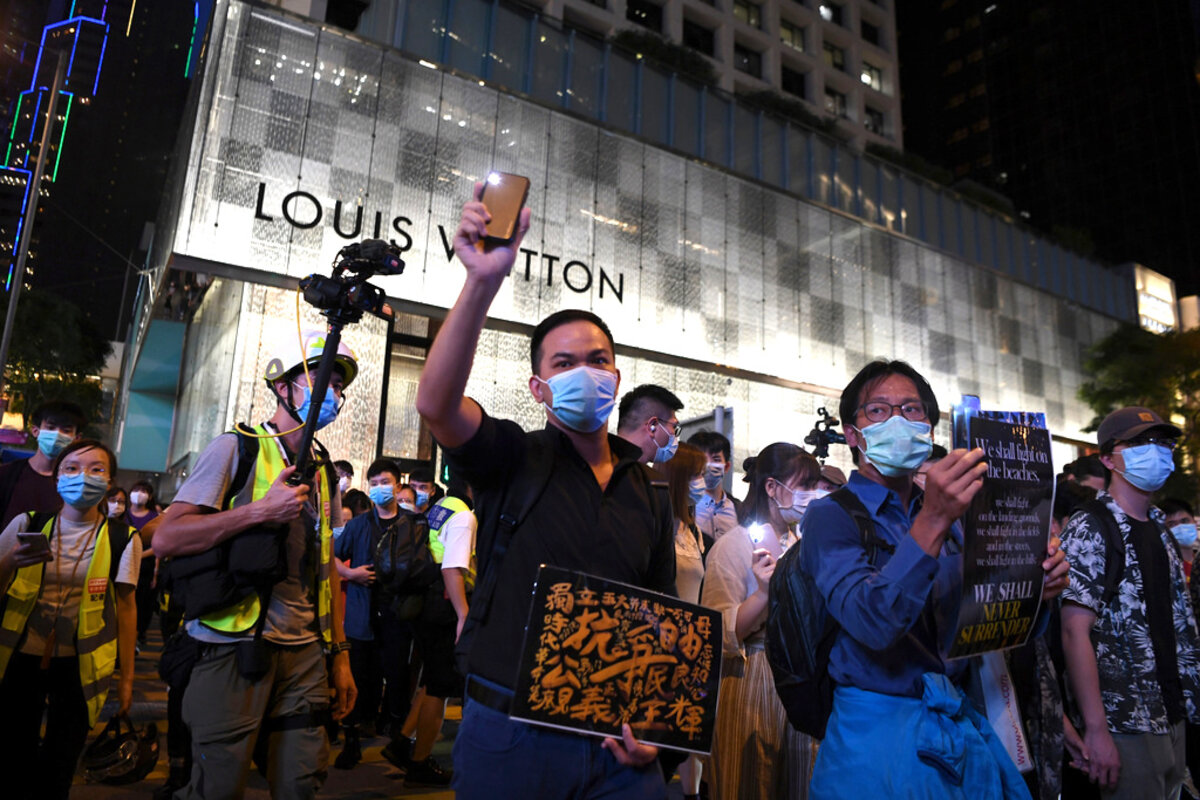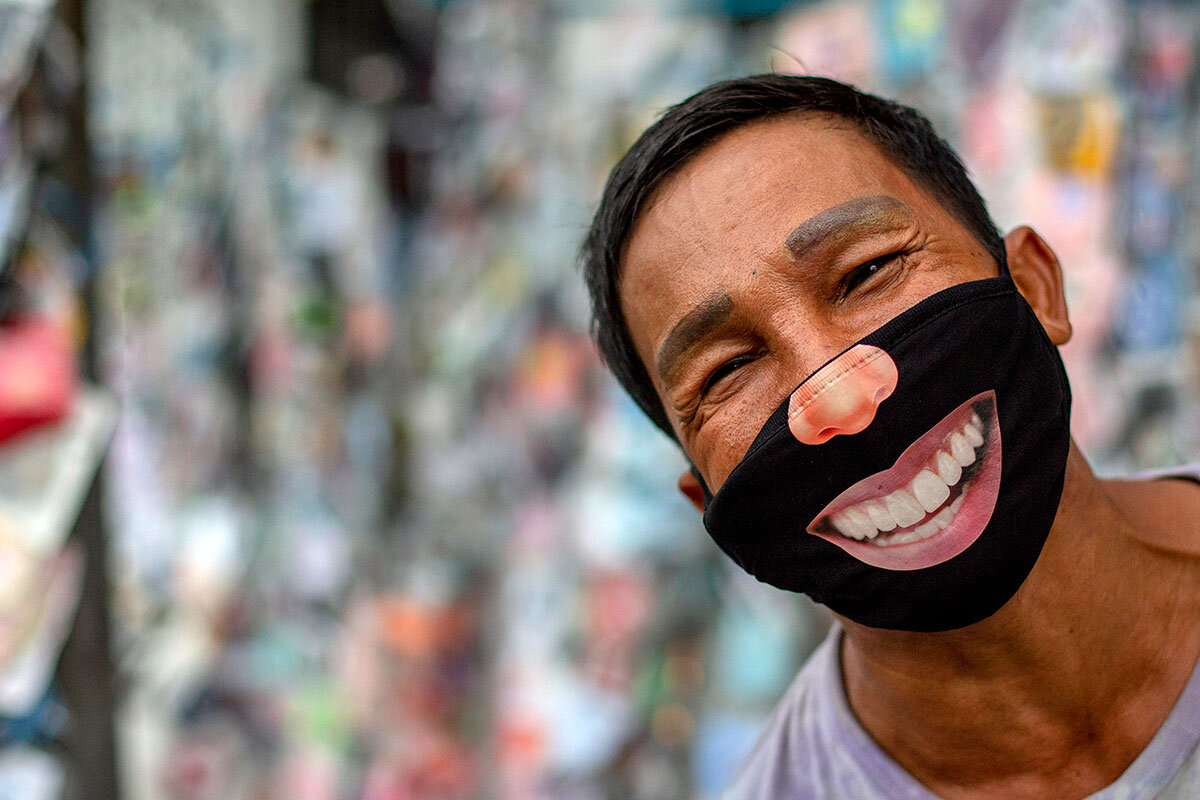As George Floyd is laid to rest in Houston Tuesday, we offer some geographical and historical perspective on racial injustice. Our reporters talk to people who knew Mr. Floyd growing up. How is this moment different from the summer of protests in 1967?
Monitor Daily Podcast
- Follow us:
- Apple Podcasts
- Spotify
- RSS Feed
- Download
 David Clark Scott
David Clark Scott
In the past week, I’ve had the privilege of watching the NFL response to the George Floyd protests through the eyes of an 11-year-old friend. He’s a huge football fan and avid student of the game.
He was fascinated by last week’s video of black pro football players demanding the NFL “condemn racism and the systemic oppression of black people.” He’s heard about the NFL commissioner’s response. But he was particularly interested in what Drew Brees of the New Orleans Saints posted on Instagram:
“Through my ongoing conversations with friends, teammates, and leaders in the black community, I realize this is not an issue about the American flag. It has never been,” Mr. Brees wrote, reversing an earlier position.”We can no longer use the flag to turn people away or distract them from the real issues that face our black communities.”
“Wow,” my friend responded.
“Why ‘wow’?” I asked.
He was incredulous: “Drew Brees is the second-best quarterback in the NFL today – after Tom Brady, of course.”
You might say “so what?” if Mr. Brees and a few other white athletes finally understand why San Francisco 49ers QB Colin Kaepernick knelt during the national anthem in 2016. A shift in views by pro athletes won’t end racism. And 32 NFL owners have yet to offer Mr. Kaepernick a job.
But to many young football fans, what Drew Brees says matters. And my young African American friend heard a change of thought, and a change of heart. Maybe even some humility. And that mattered.









